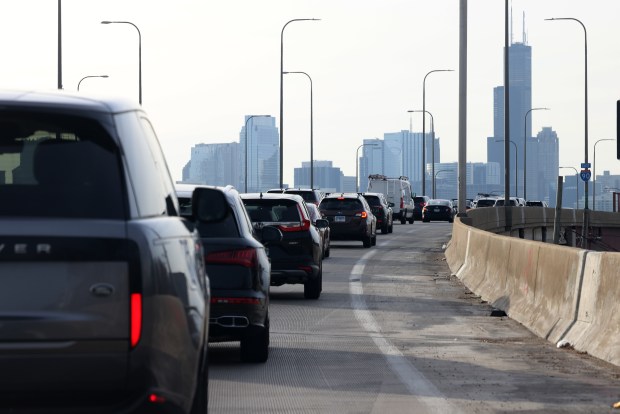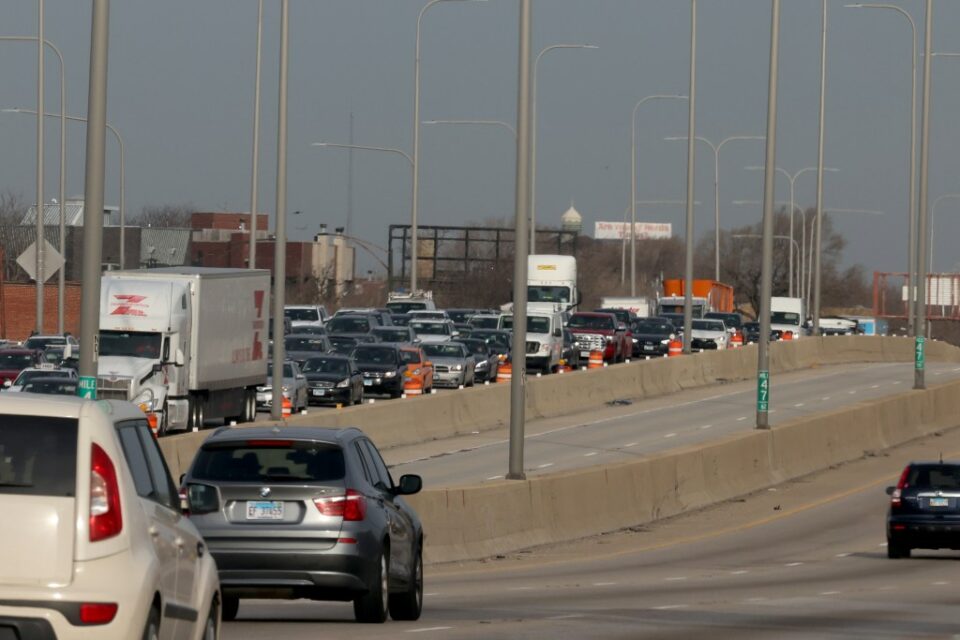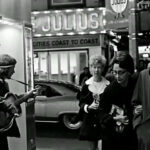Chicago’s mild spring brought a likely unwelcome development for commuters on the Kennedy Expressway Tuesday morning, as lane closures kicked in and the second stage of the I-90 rehab got underway earlier than usual.
The reversible express lanes running down the center of the highway closed around 9 p.m. Monday and will remain inaccessible to drivers until fall. That meant two fewer lanes for commuters heading toward downtown during the morning rush Tuesday.
And more lanes will be closing this week. Left lanes in both directions will close near downtown for work on the large underpass near Hubbard Street, as will the ramp from westbound Randolph Street onto the outbound, or northbound, Kennedy.
Even though work began earlier than expected, the lanes still will likely remain closed through late fall, Illinois Department of Transportation spokeswoman Maria Castaneda said. She declined to give a specific reopening date, saying it could shift earlier or later depending partly on weather. During the first year of the project, lanes began closing in late March and began reopening in early December.
The work, which also involves closing the left lane on the inbound, or southbound, Kennedy and Edens expressways near the junction where the two join, is the second phase of a $150 million rehab of the expressway.
The project stretches along 7.5 miles of the 10-lane expressway, from the I-94 split south to downtown. It includes work on 36 bridges and the reversible express lane access system, replacing overhead signs, upgrading lighting, paving and painting. It also includes painting and installing new lighting at the Hubbard underpass near Ohio and Lake streets.
The three-year project began in 2023 in the inbound, or southbound, lanes, when two closed at a time and the express lanes remained open only heading toward downtown. Next year, in what is planned to be the final stage, work will take place in the outbound, or northbound, lanes, and the express lanes will remain open heading north from downtown.
This year, the work is focusing on the reversible express lanes, where the current access system was installed in 1996. On top of the monthslong lane closures, lanes and ramps will temporarily close overnight this week during setup for the rest of the construction season, and overnight shoulder and lane closures could take place throughout the year near the Hubbard underpass, between Milwaukee Avenue and Randolph Street, IDOT said.
But, in a slight bit of good news for drivers, once the major lane closures are in place, there will be few changes until the lanes reopen in the fall. That will be different from last year, when lane and ramp closures shifted throughout the year as crews worked on various sections of the inbound lanes.

Still, traffic was already backed up more than usual Tuesday morning, Castaneda said. And IDOT is warning drivers to prepare for longer travel times.
That likely includes during during the summer, when the city prepares for major events like the Democratic National Convention and the return of the NASCAR Chicago Street Race. IDOT often tries to accommodate special events and busy travel dates, but because of the nature of the rehab cannot reopen lanes on the Kennedy until they are safe to drive on, Castaneda said.
Castaneda encouraged commuters to find alternate routes, carpool or take public transportation. The CTA Blue Line runs down the center of the expressway for part of its route into downtown, and Metra’s Union Pacific Northwest Line runs alongside the highway.
Typically, drivers take about a week or so to adjust their schedules to construction, leaving home earlier or later, switching the days they work remotely, or finding alternate transportation, she said.
Indeed, Metra spokesman Michael Gillis said Tuesday it was too early to tell if the construction was boosting ridership on the commuter rail service. Last year, Metra added weekday trains to the Union Pacific Northwest Line partly because of the construction, and that schedule remains in effect, he said.
Sarah Freishtat , 2024-03-12 22:31:35
Source link


